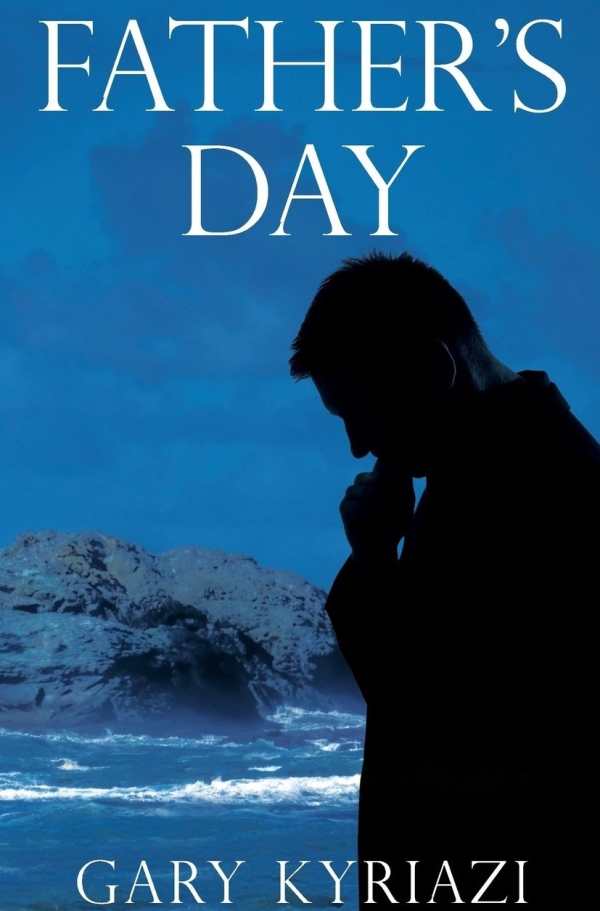Father's Day
This surprising novel explores the not-so-perfect lives inside an insular religious community.
Coincidence, Christianity, and the past collide in Gary Kyriazi’s introspective morality tale, Father’s Day.
It’s the afternoon before Father’s Day, and Pastor Sal Satori, the self-righteous leader of a small Christian community in small-town California, is anticipating the next day’s annual picnic. He’s also anticipating the arrival of evil, which, for unexplained reasons, he’s certain is headed their way. Farther south, ex-NFL star Pete Freeman, headed north, picks up a hitchhiker and his dog.
From the start, it’s clear that Satori is the unhappy commander of an unhappy flock, including his wife, Connie, and teenage son, Corey. Joining the narrow cast of characters are a mentally and emotionally handicapped gas station attendant, a prematurely cynical waitress named Jessie, and Lillian Walker, a registered nurse who feels overlooked by romance and by life in general.
It’s hard to muster sympathy for the decidedly uncharismatic pastor, whose unrelieved rigidity quickly wears thin. There is little suggestion that he might have wounds and issues of his own. While his motives are eventually explained, the revelation is late in coming.
Better developed are the characters of Pete and his hitchhiker, Jay. Both are former tough guys turned New Age men.
Pete, at a crossroads and working through grief over his father’s death, starts the day with a crying jag. Jay, once an undercover man for the Los Angeles police, had a meltdown when sentiment kept him from arresting two young prostitutes. He quit the force, acquired a dog, and became an itinerant hippie. The men share, bond, and dialogue in a way that often sounds like group therapy, but their positive effect on each other is undeniable.
When Pete and Jay stop for gas and wander into the town café, paths collide. Corey’s innocent admiration of Pete’s Super Bowl ring triggers a blowup that fractures the Satori family and dominates the rest of the book. The outburst baffles Pete and Jay, and will likely baffle readers, too.
The story’s most realistic characters are its three women and the pastor’s teenage son. Disappointments and revelations shared by Lillian and Connie seem natural, while Jessie’s jaded approach to life is vivid and easy to sympathize with, as is coming-of-age Corey’s conflicted desire to both please his father and escape his domineering presence.
Father’s Day has a credible plot but little action. Too often, its fever pitch of emotions—conveyed by profanity, outbursts of fury, dramatic declarations, and screaming at God from the ocean’s edge—is out of proportion to what is known about the characters and what is happening on the page.
The last two chapters of the book offer a heftier slice of action, though interspersed passages from the Lord’s Prayer hit the boards a bit too hard. Like life itself, fates are resolved by impulse and chance, some deserved, some not, and all surprising.
Father’s Day takes on an unusual theme, explores the not-so-perfect lives inside an insular religious community, and delivers an ending that will register high on the surprise scale.
Reviewed by
Susan Waggoner
Disclosure: This article is not an endorsement, but a review. The publisher of this book provided free copies of the book and paid a small fee to have their book reviewed by a professional reviewer. Foreword Reviews and Clarion Reviews make no guarantee that the publisher will receive a positive review. Foreword Magazine, Inc. is disclosing this in accordance with the Federal Trade Commission’s 16 CFR, Part 255.

